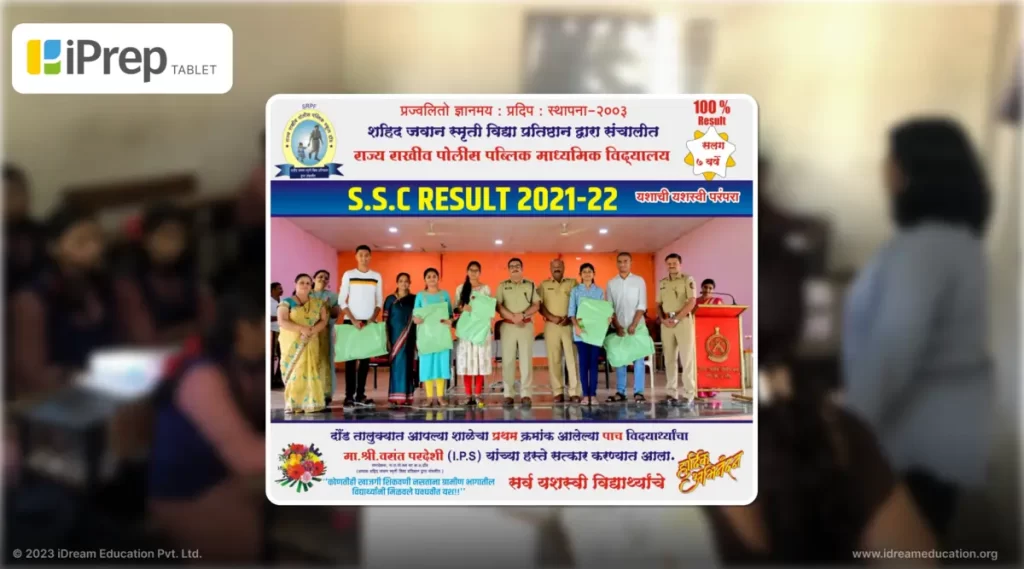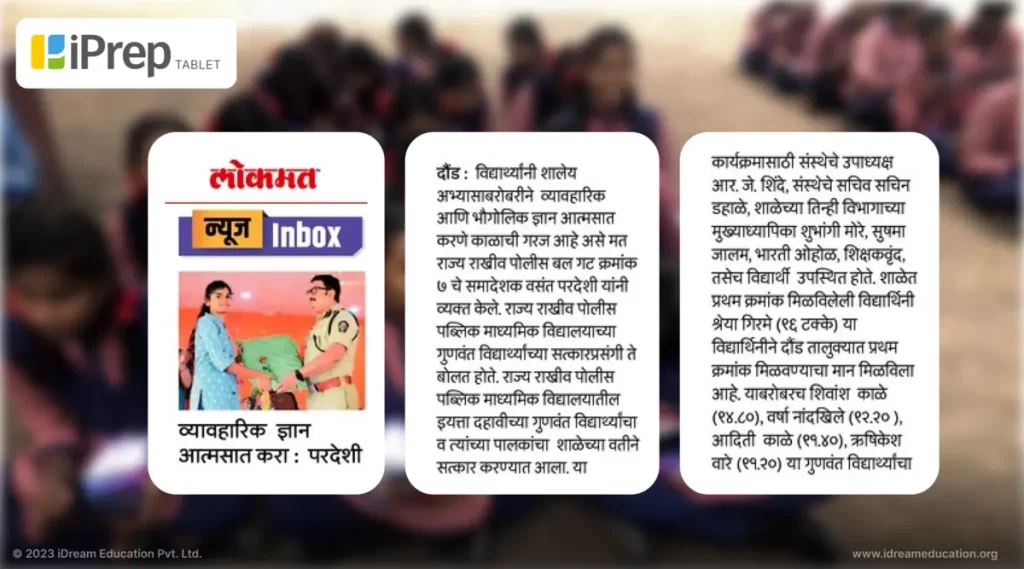A Determined Teenager Overcomes Learning Gaps Through Personalised Learning
Shreya Namdev is a teenage girl residing in the small town of Daund Tehsil, located in Pune, Maharashtra. She belongs to an orthodox family with traditional beliefs that girls are only meant to do household chores. However, Shreya was different from others; she had the determination to learn and never missed a day of school, despite her family’s beliefs.
Shreya’s mother is a homemaker, and her father is a farmer. She has a younger sister too. Although her surroundings were not very supportive, Shreya would attend school regularly, listen attentively, and try to grasp whatever was being taught, but she never asked any doubts as she did not feel comfortable doing so.
Also Read: Promoting Language Diversity: Harnessing the Richness of Teaching and Learning in Hindi
Learning at Home During Covid-19
Unfortunately, due to the Covid-19 pandemic, Shreya, like everyone else, got stuck at home for two years, which was a significant setback for her education. During this time, her involvement in household chores increased, and she spent most of her time working with her mother and helping her father and sister. However, Shreya was determined not to let this setback stop her from learning. She started watching YouTube videos on her father’s phone to compensate for the lack of schooling. She watched videos on different topics taught in class, but it was difficult for her to maintain continuity and match what was being taught in the classroom.
Shreya resumes School
Finally, after two long years, Shreya got to attend school again. However, getting back to school was not an easy task for her. Shreya had to convince her parents to let her return to school, knowing it would be a tough battle. But, she was determined to succeed and showed her parents how much she wanted to learn and how important it was for her to make them proud. Finally, her parents agreed to let her go back to school.
However, the school was not the same as before the lockdown. Students, including Shreya in Rajya Rakhiv Police Public Madhyamik School, were facing a learning gap, and the principal knew something had to be done to change things. The principal reached out to the project coordinators of the CIPLA Foundation, which she has been associated with for years, to provide students with the best infrastructure. After much deliberation, the project coordinators decided to introduce personalised learning for students in classes 9th and 10th.

Transitioning to Digital Education for Self-learning
The students were given iPrep Tablets with preloaded content for classes 9th and 10th for offline usage, and internet-connected students could access the content of all grades. This enabled an asynchronous learning environment where students could engage with the course content anytime anywhere.
Shreya also got her personalised learning device, but by this time, she was in 10th grade. She had only a basic understanding of the 9th-grade curriculum since she had studied it on her own during the lockdown, with very little assistance from her teachers. However, now the learning tablet has become her digital textbook, and she even took it home to learn from the content of class 9th to cover the syllabus that was missed during the lockdown. She would watch animated lessons to develop her understanding of textbook topics and test her knowledge through practice exercises. Through a reporting section on the tablet, she kept track of her progress and identified areas where she needed to improve.
The Power of Personalised Learning
She spent a year dedicatedly studying from various types of content such as video lessons, taking detailed references from digital syllabus books, making notes, and practicing while also keeping track of her progress in both 9th and 10th-grade classes on her learning tablet. As a result of her efforts, she felt prepared and confident to take on the challenge of her board exams.
As she entered the examination hall, she felt a sense of confidence that she had never experienced before. The days passed quickly, and soon it was time for the results to be announced. Surprisingly, she had not only passed but topped Class 10th in the Pune District.

Her parents were overjoyed to see their child top class 10th in the entire district and mentioned, “she used to spend hours scrolling content on tablet.” Her teachers were proud and talked about her eagerness to ask questions, considering what was shown in video lessons on a tablet. All this is a testament to her dedication to learning and her thirst for knowledge.
Shreya’s success brought happiness to her family and inspired her to strive for excellence in everything she did.
If in case you would like to know more about our digital learning solutions, visit website, www.idreameducation.org or write at share@idreameducation.org
Copyright@IndiaCSR
Also Read: How Digital Education Can Solve the 5 Biggest Educational Challenges that India is Facing?







